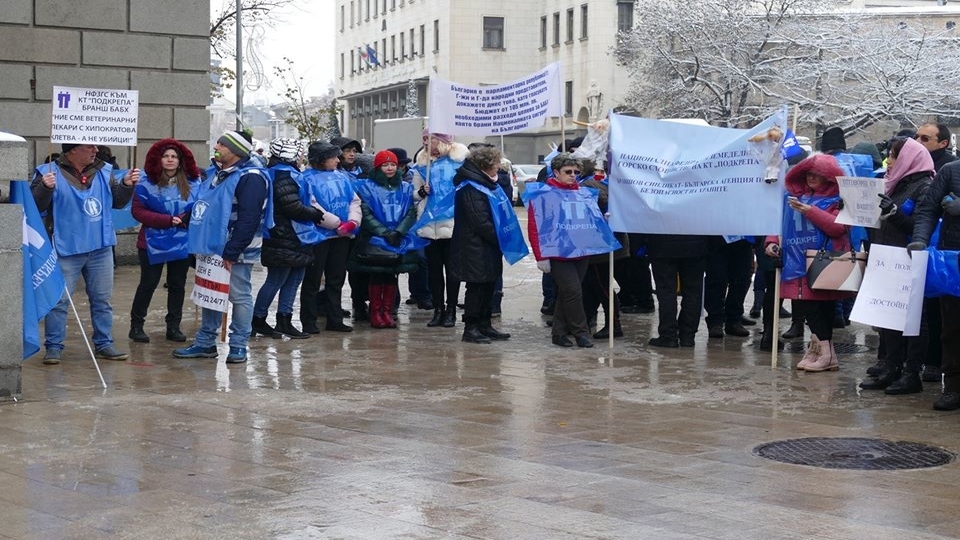On December 4, workers at the Bulgarian Food Safety Authority (BFSA) held a protest under the banner “Decent Wages and Decent Work Conditions in the BFSA” in front of the council of ministers’ building in Sofia. The call for the protest was given by the National Federation of Agriculture and Forestry, the trade union affiliated to the Confederation of Labour Podkrepa.
The main demand of the protesters is that the necessary funds for expenditure under the BFSA budget for 2020 should be raised to 105 million Bulgarian Levs (USD 60 million), insisting that these funds be earmarked exclusively for guaranteeing the food safety of Bulgarians. As of now, the BFSA budget is 60 million BGN (USD 34 million) and part of the budget of the Ministry of Agriculture.
The workers also complained about low wages and poor working conditions. Currently, the average salary in the agency is between 800 and 1000 BGN (about USD 457 to 571).
In the union’s statement, Aneliya Ivanova, chairman of the National Federation of Agriculture and Forestry, insisted that the issue of the cyclical under-funding of the BFSA budget, which has existed since its creation, must be finally resolved. The reforms in the agricultural sector have consistently transferred countless responsibilities to the BFSA, without being accompanied by adequate financing. The agency is therefore unable to guarantee the real fulfillment of its obligations.
According to reports, following the protest, the union representatives submitted a statement of claims to the council of ministers. The BFSA staff also hinted that they are ready for more protests if their demands are not met.





